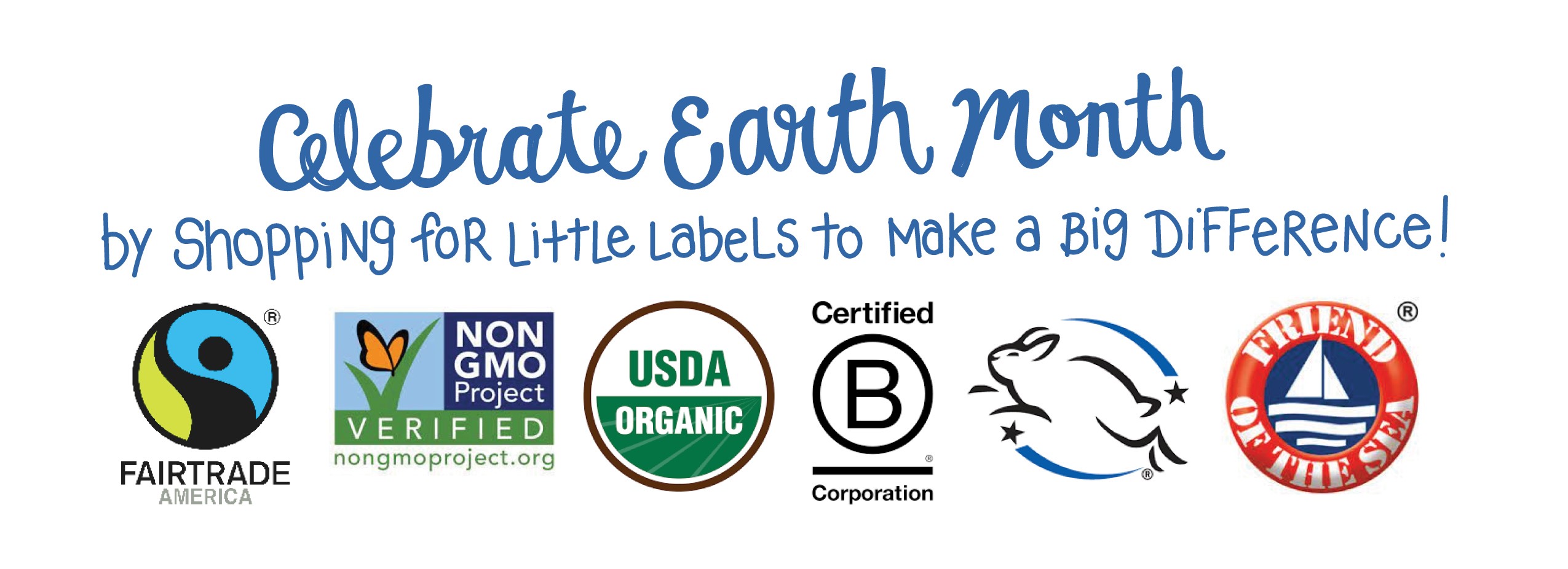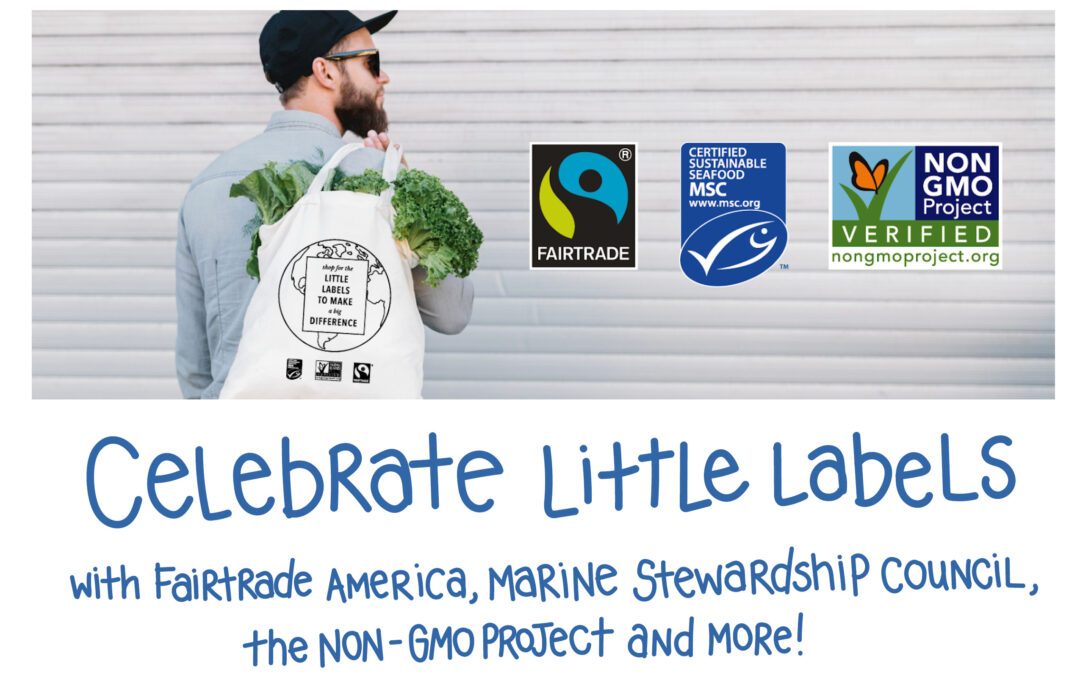If you’re like many shoppers, you want to know how the food you buy affects people and the planet, including how it was grown, harvested and produced. You seek out greater transparency from stores like ours, as well as from your favorite brands and the companies who produce your food.
We, too, believe you have a right to know if what you’re buying aligns with your values! That’s where third-party certifications play a big role. When you see the little labels by independent third-party certifiers on your food, you know that product underwent a rigorous evaluation to ensure it met a set of strict standards.
To highlight the positive impacts these labels make, this April we’re celebrating Little Labels, Big Impact all month – honoring Fairtrade America, Marine Stewardship Council and the Non-GMO Project! By looking for the Non-GMO Project Butterfly, Fairtrade America and Marine Stewardship Council labels, you can shop sustainably throughout our store! Read on to learn how they are driving big, meaningful change in our food system!
Fairtrade
The Fairtrade Mark means this product is produced in line with rigorous economic, social and environmental standards to create a world where farmers get a fair price for their goods, women and communities thrive, and the environment is prioritized. Learn more at fairtradeamerica.org
Non-GMO Project
By choosing Non-GMO Project Verified, you’re choosing the most rigorous standard for GMO avoidance, and supporting a better, more sustainable food system for people and the planet. Learn more at nongmoproject.org
Organic Certification
Organic certification requires that farmers and handlers document their processes and get inspected every year. Organic on-site inspections account for every component of the operation, including, but not limited to, seed sources, soil conditions, crop health, weed and pest management, water systems, inputs, contamination and commingling risks and prevention, and record-keeping. Tracing organic products from start to finish is part of the USDA organic promise.
B Corp Certification
is a designation that a business is meeting high standards of verified performance, accountability, and transparency on factors from employee benefits and charitable giving to supply chain practices and input materials. In order to achieve certification, a company must:
- Demonstrate high social and environmental performance by achieving a B Impact Assessment score of 80 or above and passing our risk review. Multinational corporations must also meet baseline requirement standards.
- Make a legal commitment by changing their corporate governance structure to be accountable to all stakeholders, not just shareholders, and achieve benefit corporation status if available in their jurisdiction.
- Exhibit transparency by allowing information about their performance measured against B Lab’s standards to be publicly available on their B Corp profile on B Lab’s website.
Leaping Bunny
By 1996, ‘cruelty-free’ shopping had become popular, but it was also confusing, sometimes misleading, and ultimately frustrating. Companies had begun designing their own bunny logos, abiding by their own definition of ‘cruelty-free’ or ‘animal friendly’ without the participation of animal protection groups.
In response, eight national animal protection groups banded together to form the Coalition for Consumer Information on Cosmetics (CCIC). The CCIC promotes a single comprehensive standard and an internationally recognized Leaping Bunny Logo. We work with companies to help make shopping for animal-friendly products easier and more trustworthy.
Friend of the Sea
Friend of the Sea has become the leading certification standard for products and services which respect and protect the marine environment. The certification awards sustainable practices in Fisheries, Aquaculture, Fishmeal and Omega 3 Fish Oil. Friend of the Sea also promotes pilot projects related to restaurants, sustainable shipping, whale and dolphin-watching, aquaria, ornamental fish, UV creams and others.



Recent Comments